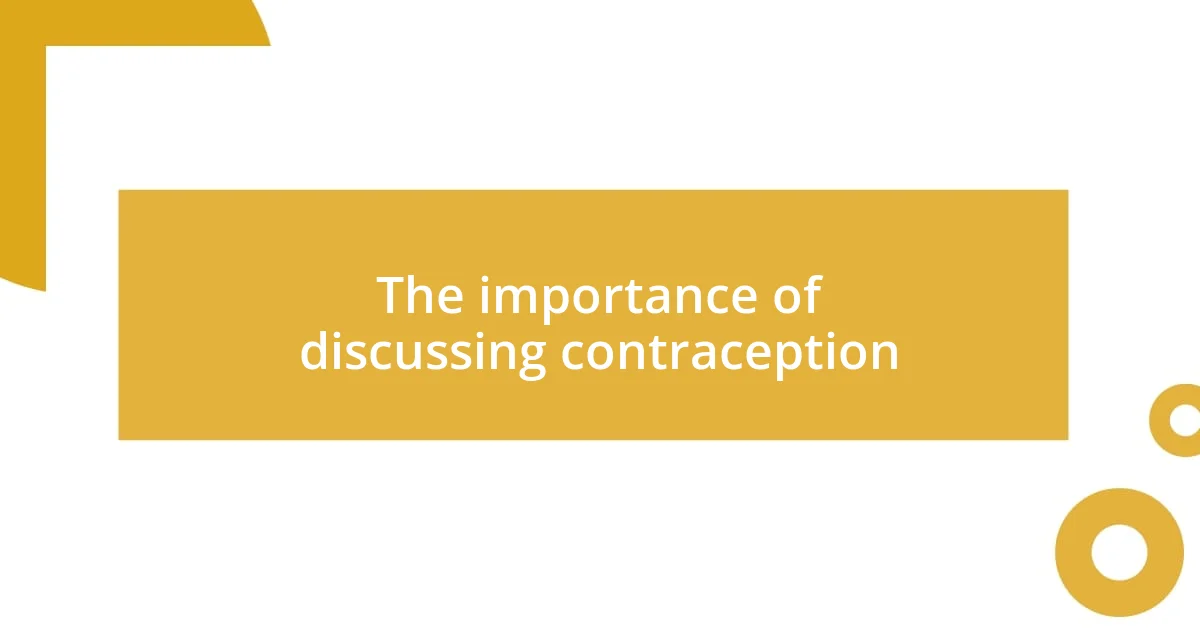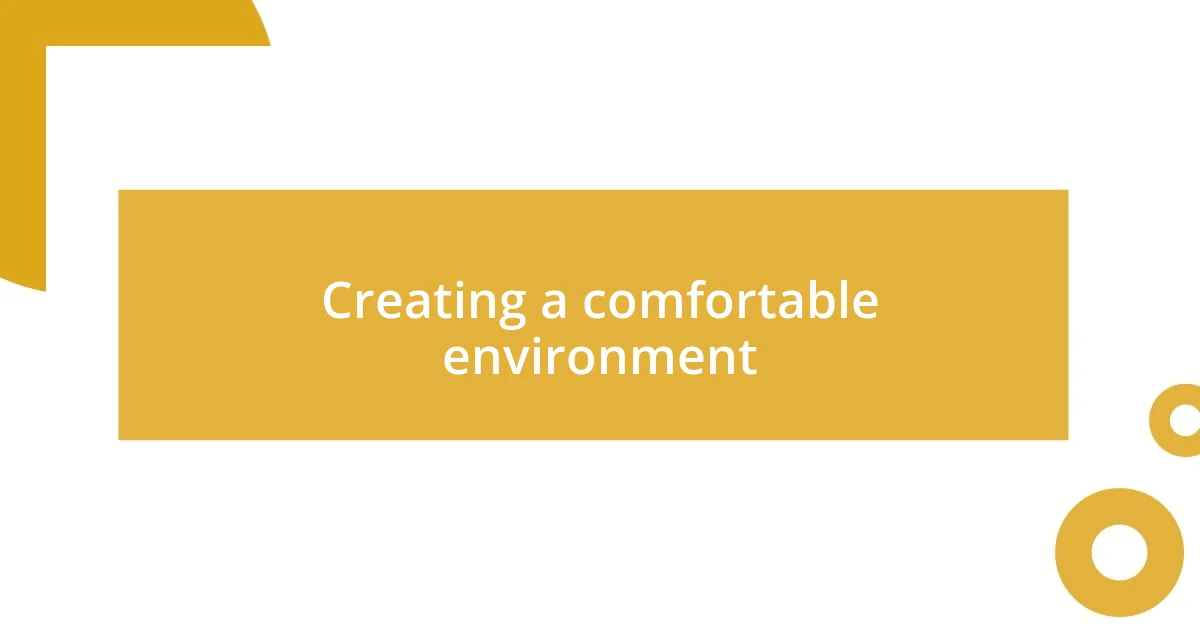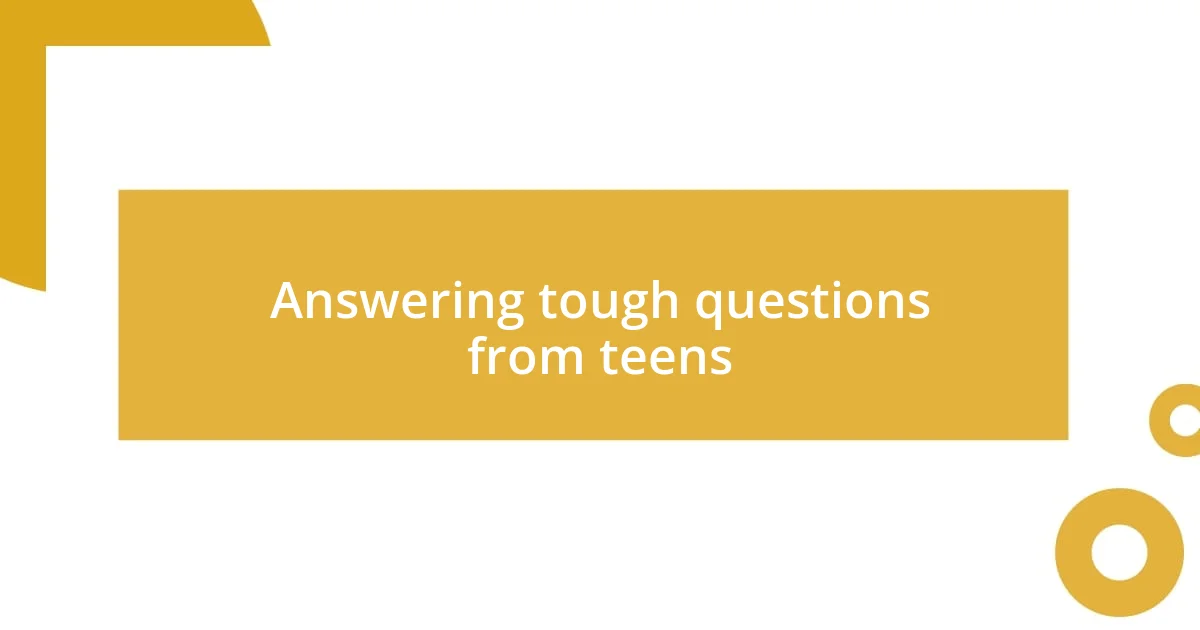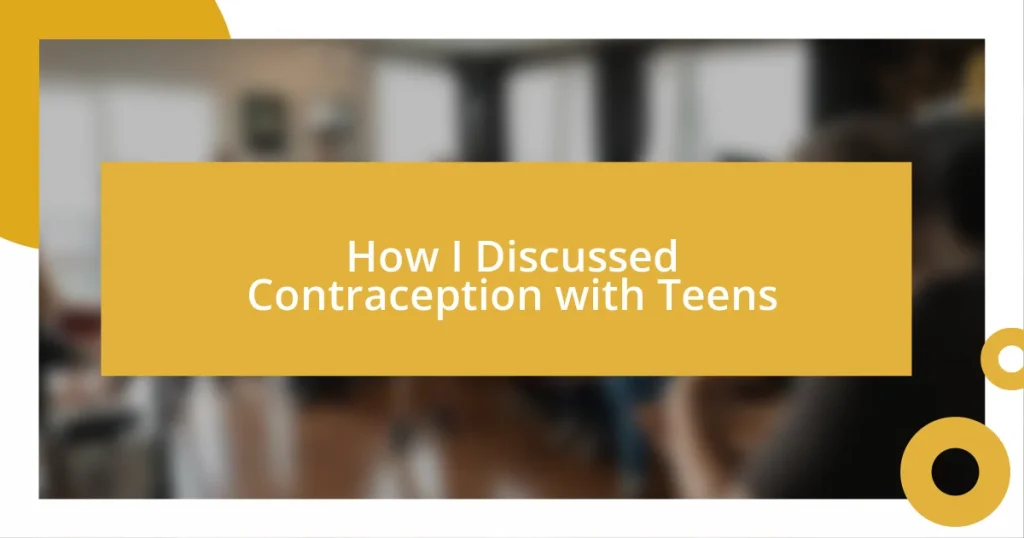Key takeaways:
- Open discussions about contraception empower teens to make informed choices and reduce stigma.
- Creating a safe and comfortable environment is crucial for encouraging honest conversations and addressing misconceptions.
- Responding to tough questions with empathy and connecting contraception to teens’ goals fosters understanding and equips them for future decisions.

The importance of discussing contraception
Discussing contraception is crucial because it empowers teens to make informed decisions about their bodies and futures. I remember a time when a young friend confided in me about her fears surrounding unplanned pregnancy. It struck me then how many teens are left in the dark, unaware of their options, and it became clear that open conversations can bridge that gap.
When I finally sat down to chat about contraception with my younger sibling, I was nervous but realized it was a significant leap for both of us. Instead of feeling awkward, we ended up laughing and sharing surprising stories. How often do we take for granted the knowledge we have? Engaging in these discussions helps dismantle stigma and encourages a culture of trust.
Having these conversations also helps cultivate responsibility. I often reflect on how easily misinformation can spread among peers. When I shared facts about different contraceptive methods, it was eye-opening for my sibling and their friends. Isn’t it far better to guide them with accurate information than to leave them guessing?

Understanding teens’ perspectives
Understanding teens’ perspectives is essential in these conversations. I often find that teens perceive contraception through a lens of pressure, fear, and sometimes even stigma. During one conversation with a group of teens, I was struck by their fears of judgment from peers and adults. It was eye-opening to see how their concerns often overshadowed the factual information about contraception. This experience reinforced the importance of creating a safe space for them to express their thoughts without fear.
Another key aspect I noticed is that many teens crave honest discussions but often lack the opportunity. I remember when I attended a community workshop where teens were encouraged to discuss their views. The conversations were raw and insightful. They shared stories of confusion about different methods, and it reminded me how critical it is to validate their feelings while also providing education. It reinforced for me that understanding their perspective is as important as imparting knowledge.
Lastly, I’ve realized that culture plays a significant role in how teens view contraception. A close family friend shared their experience of growing up in a conservative environment, which shaped their understanding of sexual health. They expressed how difficult it was to reconcile their emotions with what they were taught. This emphasizes to me the need for flexibility in our discussions. When we take the time to understand these diverse backgrounds and perspectives, we can tailor our approach and truly resonate with the teens we engage.
| Aspect | Teens’ Perspective |
|---|---|
| Fear of Judgment | Teens often worry about being criticized for their choices. |
| Cultural Influences | Cultural background heavily influences their understanding of contraception. |
| Need for Honest Discussions | Teens value open conversations but often lack safe opportunities to engage. |

Creating a comfortable environment
Creating a comfortable space for discussions about contraception is vital. I recall hosting a casual gathering with friends and, almost on a whim, decided to bring it up during a conversation. The room shifted; what was once filled with laughter became a space where genuine questions emerged. I had underestimated the impact of a relaxed setting. Suddenly, everyone felt free to share their stories and misconceptions without judgment. It was a reminder that the right environment can transform a daunting topic into an open dialogue.
To foster this atmosphere, consider these strategies:
- Choose a private space: Make sure the location feels safe and away from prying ears.
- Use relatable language: Avoid medical jargon that might alienate them; make it conversational.
- Encourage questions: Remind them that no question is too silly or embarrassing; curiosity is a good thing.
- Share personal stories: If appropriate, opening up about your experiences can help them feel less alone.
- Listen actively: Show that their feelings and opinions matter by engaging with what they say.
Creating a space where openness thrives not only enriches the conversation but also strengthens your bond with the teens involved. This personal connection reminds me of the warm discussions I’ve had with my niece, where even the most awkward topics began with laughter and ended with learning. It’s those moments that stick with us and drive home the importance of approachable conversations.

Answering tough questions from teens
When teens ask tough questions about contraception, it’s crucial to approach their inquiries with both honesty and empathy. I remember a moment when a teen asked me, “What if I make the wrong choice?” It struck me how vulnerable that question was, revealing deep fears about their future and relationships. I responded by sharing how every decision we make in life comes with uncertainty, but being informed gives us the power to navigate those choices better. It’s about helping them feel equipped, not overwhelmed.
During another discussion, a teen bluntly asked, “Why should I even care about contraception?” It made me reflect on the importance of connecting contraception to their own goals and dreams. I shared my own experience of how being proactive about reproductive health enabled me to pursue my passions without the unexpected hurdles that a lack of preparation could bring. It’s vital to frame the conversation in a way that resonates with their aspirations – after all, they are not just seeking information, but clarity about their future.
I find that encouraging them to articulate their fears can lead to deep revelations. For instance, when a young person voiced their concern about being judged for using contraception, I was reminded of my teenage years when societal pressures weighed heavily on me as well. By sharing that experience, I helped create a bridge of understanding. It’s moments like these that highlight how crucial it is to normalize these tough conversations, allowing teens to explore their emotions openly while fostering a sense of community. Isn’t it rewarding to know that those discussions can be the key to empowering the next generation?














